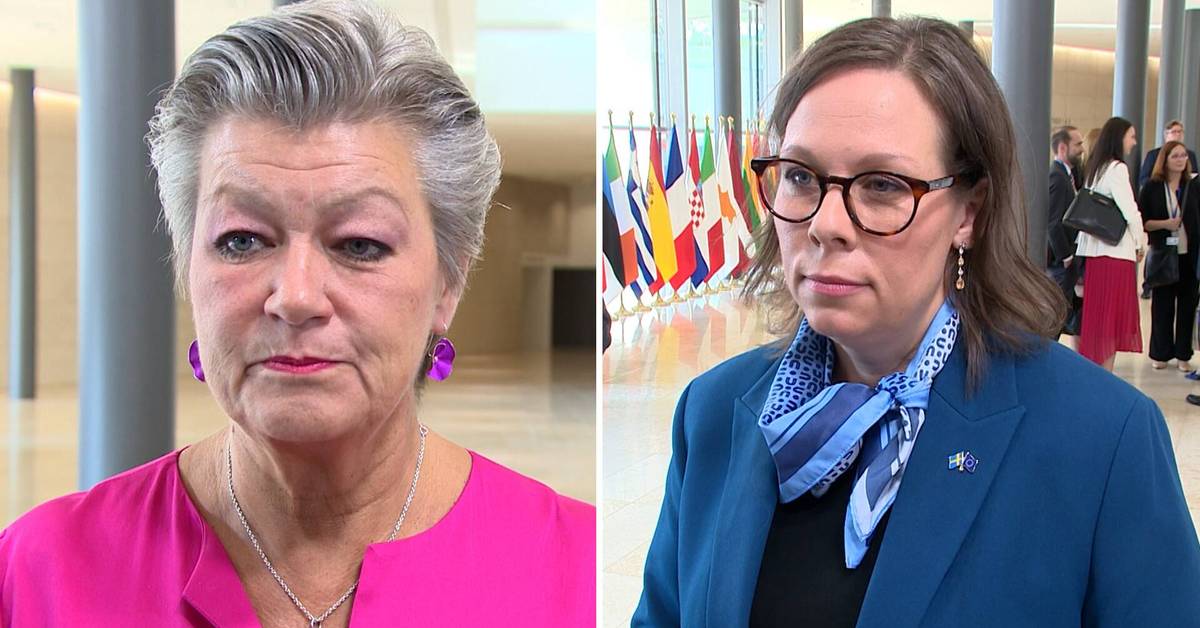It has been three years since Ylva Johansson presented the proposal for a major asylum and migration pact, which, among other things, will determine which countries in the Union will be responsible for asylum seekers and how to share the task jointly and severally within the Union.
However, there has been a great deal of disagreement, but perhaps now is the time.
"The migration issue is difficult in many Member States. But the proposal that is now on the table should be something that the member states can support, says Migration Minister Maria Malmer Stenergard (M) on her way into the meeting on Thursday morning.
What is the EU Migration Pact?
The compromise for which support is sought continues to mean that asylum and migration management should primarily take place in the EU country where the new arrivals first arrive. But all other countries also promise to help when the situation is tough, either with redeployment or personnel or equipment or clean money.
The equivalent of a quarter of a million kronor per person is the amount that is being discussed for those countries that want to "buy themselves free" from taking care of new arrivals.
"I believe that EUR 20 000 is a reasonable level. But this is the kind of issue that may be discussed," says Malmer Stenergard.
Ylva Johansson stresses the importance of EU countries now being able to say yes to a system where they promise to help each other.
"It is a huge breakthrough if we get an agreement that involves compulsory solidarity. But the most important thing is not the details, it is the whole. Europe to agree on a common European policy to manage migration.
Does Italy say yes?
A key role is played by Italy, which is under pressure from a large number of new arrivals and has for years demanded even greater help from the rest of the EU. Perhaps the decision can be made by increased cooperation with Tunisia, which earlier this week received a visit from Italian Prime Minister Giorgia Meloni.
But whether Italy says yes to Malmer Stenergard is unclear until the very end.
"That's probably the SEK 10,000 question," says the Migration Minister.

